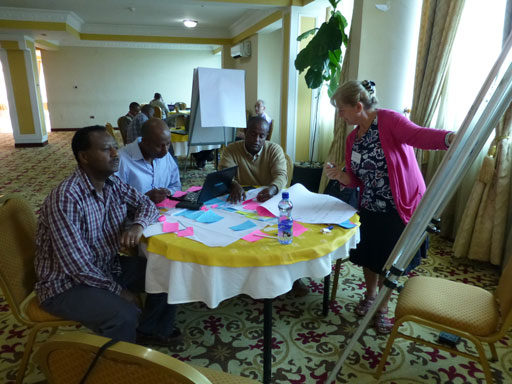11.1.3 Sharing experience with others
Effective knowledge management can support an organisation to become a ‘learning culture’ in which all stakeholders – including WASH employees – are encouraged and empowered to investigate shared problems and collaborate in finding and adapting locally relevant solutions. Achieving a vibrant learning culture throughout the WASH sector may require some adaptations within WASH organisations to enable shared learning to occur. Finding the time and space to bring people together in an environment where relationships and understanding can develop can be difficult. However, the benefits are that everyone – not just the WASH experts – will be inspired to share their knowledge and experiences to solve problems jointly.
Another benefit of shared learning is that it integrates the human and technological assets of an organisation and improves coordination, productivity and effectiveness. It utilises resources more efficiently by reducing duplication of effort and minimising overlaps between activities. A good example of this in Ethiopia is the Forum for Learning on Water and Sanitation (FLoWS). This brings stakeholders together to discuss topical issues and to share experiences of the technologies and approaches they use in their various projects. FLoWS is described in more detail in Section 11.3.2.
Knowledge sharing between the WASH sectors in different countries is also vitally important. The exchange of information is a two-way process recognising that all participants in knowledge partnerships have much to offer and much to learn (Figure 11.1).

A well-designed knowledge management system need not require advanced information technology or new staff, but it must have processes in place to ensure that essential information is documented and held securely by the organisation or sector, and that it can be reliably retrieved and shared. The next section looks in more detail at documentation in the WASH sector.
11.1.2 Why is knowledge management so important?
